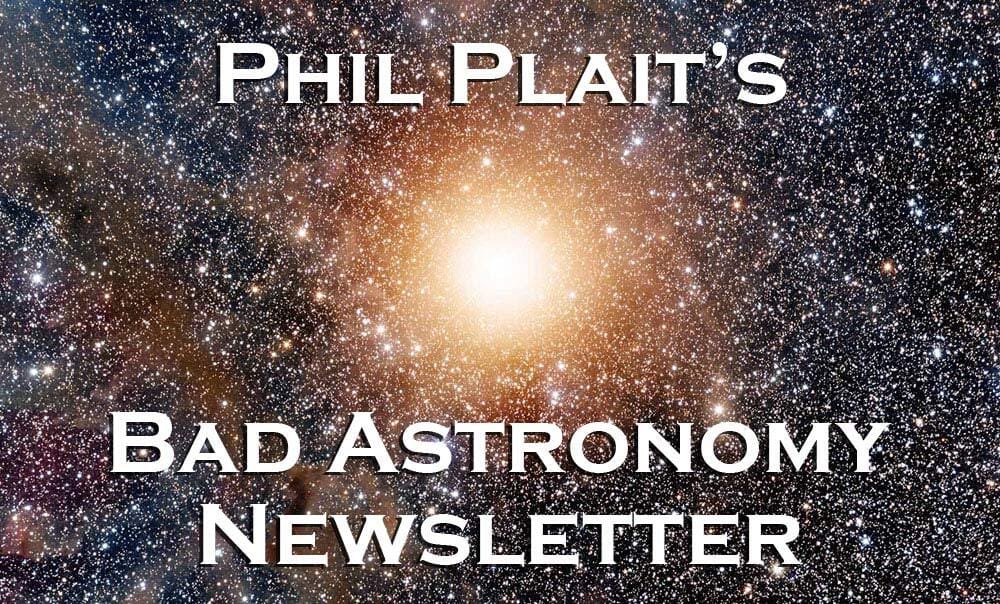- Bad Astronomy Newsletter
- Posts
- Artificial intelligence ain’t, and a tipped exoplanet
Artificial intelligence ain’t, and a tipped exoplanet
Do not trust AI. It sucks. Also, a weird planet orbiting its star at a weird angle.
December 31, 2024 Issue #820
Search and Destroy
Googling gone wrong
As you may know, I’m not a fan of Large Language Models, misleadingly called AI by most folks, when they’re deployed to be used by the public. They have some limited use; they can parse lots of input to help find patterns, or be used to generate code. But they still inject a ton of errors into the process, and need a human eye and brain to look over the results.
Despite these errors, search engines like Google and Duck Duck Go are implementing them, giving millions of people flagrantly incorrect information. Sometimes this can be dangerous, like the now-infamous mushroom-hunting results that could result in people dropping dead from eating the wrong fungus.
Two others popped up recently that had me scratching my head. I posted about one on Bluesky, where if you type “pork salt substitute kosher” into Google it confidently tells you that pancetta and bacon make for kosher substitutes in your meal. I tried that one myself and it actually happened, so it’s real. Oy.
My wife sent me another. She is a gardener, and was looking into what kind of mulch to get. She typed “is hardwood mulch less acidic than pine bark mulch” into Google, and it replied with this:

Mulch ado about nothing.
This what I would call a basic mistake.
It’s not great when your AI would fail 9th grade chemistry (and you don’t need a pH D to know that). For those who don’t remember high school all that well, “more alkaline” is the same thing as “less acidic”. It should have said, “Yes, hardwood mulch is less acidic or more alkaline than pine bark mulch”.
These AI programs are only as good as the material fed to them, and they’re getting their material from the internet. So, yeah. Do not rely on them. Ever. And make sure you get your results from trustworthy sources, or else your answers will never pass a litmus test.
Astro Tidbit
A brief synopsis of some interesting astronomy/science news
Astronomers have found a decidedly weird exoplanet, even given the overall weirdness of all these planets we see orbiting other stars [link to journal paper].
The host star is called IRAS 04125+2902 (that stands for Infrared Astronomical Satellite, an infrared survey observatory from the 1980s that discovered it, and the star’s coordinates on the sky) and is a bit more than 500 light-years from us. The star is part of the nearby Taurus star-forming region, a volume of space actively forming stars, and the closest such to us. The star itself is incredibly young, just 3.3 million years! This makes the planet found the youngest ever seen by quite a margin.
The planet was found via the transit method; we see its orbit edge-on, and once every orbit it passes directly in front of the star, dimming the light a little in a mini-eclipse. The period of the planet is a mere 8.8 days, which means it orbits the star very close in. It’s big, about the same size as Jupiter (10 times Earth’s diameter) but only about 1/3 Jupiter’s mass; a young planet is very hot and still puffed up from the heat.
Here’s where things get weird. The star is so young it’s still surrounded by a protoplanetary disk, a flattened disk of material from which planets form. These generally dissipate after a few dozen million years. Since planets form in that disk, you’d expect the planet orbit to align with the disk, that is, the planet orbits in the disk. But this planet doesn’t! We see the disk around IRAS 04125+2902 face-on, but we see the planet orbit as edge-on, so they’re something like 90° tilted to each other.

Subscribe to Premium to read the rest.
Become a paying subscriber of Premium to get access to this post and other subscriber-only content.
Already a paying subscriber? Sign In.
A subscription gets you:
- • Three (3!) issues per week, not just one
- • Full access to the BAN archives
- • Leave comment on articles (ask questions, talk to other subscribers, etc.)


Reply